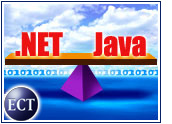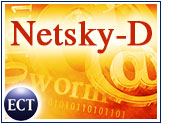
Cable giant Comcast has announced that, despite being rebuffed by Walt Disney CEO Michael Eisner, it will move ahead with a US$54 billion bid to acquire Disney. According to Comcast, its offer would be a tax-free transaction.
In a public letter addressed to Eisner, Comcast CEO Brian Roberts wrote: “It is unfortunate that you are not willing to … enter into discussions to merge Disney and Comcast to create a premier entertainment and communications company. Given this, the only way for us to proceed is to make a public proposal directly to you and your Board.”
The announcement came on the same day that Comcast released its full-year and fourth-quarter earnings reports. Although the company reported a consolidated net loss of $218 million, or 10 cents per share, for 2003, the number was a significant improvement over its 2002 net loss of 42 cents per share. Moreover, Comcast’s operating cash flow exceeded expectations, growing by $1.9 billion, or 42 percent, from the previous fiscal year.
Transaction Specifics
According to the proposal, Disney shareholders would earn a collective premium of more than $5 billion as a result of the deal, with Comcast issuing 0.78 of a share of Comcast Class A common stock for each Disney share. In total, Disney shareholders would own 42 percent of the combined company.
“The Comcast management team greatly appreciates and is highly respectful of the Disney heritage,” Roberts said. “We know there are many talented executives at Disney who we envision would also play a key role in managing the combined company, [and] we also would welcome directors from your Board joining our Board.”
Wonderful Opportunity
“We have a wonderful opportunity to create a company that combines distribution and content in a way that is far stronger and more valuable than either Disney or Comcast can be standing alone,” Roberts continued in the letter. “The combined company would be uniquely positioned to take advantage of an extraordinary collection of assets. Together, we would unite the country’s premier cable provider with Disney’s leading filmed entertainment, media networks, and theme park properties.”
Forrester Research broadband analyst Josh Bernoff told the E-Commerce Times that, on its own, Disney is in a challenging position for the long term because it does not own any cable or satellite distribution networks. While better deals may exist with other distribution providers, Bernoff believes Comcast stock will prove to be more valuable than the future scenarios Disney otherwise might face.
What To Expect
Bernoff added that this merger, if approved, would not give Disney a favored position on Comcast. Precedents set in the News Corp/DirecTV merger mean Comcast would need to promise an even playing field in order to pass FCC scrutiny.
However, no major broadcast network currently provides video-on-demand distribution. With access to Disney-owned ABC network programs and Disney-produced programs, Comcast would be able to break through this logjam, Bernoff said.
According to Bernoff, ABC could hardly be under any more pressure than it is right now. The network is in danger of slipping from its position as one of the “big three.” Video-on-demand distribution would offer audiences more opportunities to view ABC programming, and on-demand programming would allow ABC and Disney to do promotion more easily and effectively, since viewers could watch promoted shows at will.
Old as Mass Media
Bernoff went on to say that until now, broadband providers have been able to differentiate themselves only in such areas as speed. Comcast slowly has realized that, as the largest broadband supplier in the United States, it can make its offering more attractive by taking on portal-like properties and spicing up its offerings with Disney content.
GartnerG2 broadband services analyst Laura Behrens told the E-Commerce Times that the pressure for media and distribution companies to integrate vertically is as old as mass media. For example, she noted, newspapers once bought forests to keep down the cost of newsprint and later owned fleets of trucks to control distribution costs.
Comcast’s push for Disney “is for the very same reason in reverse why Murdoch and News Corp bought DirecTV,” Behrens said. “When cable and broadband Internet costs go up every year, and there’s that hue and cry from the public, Comcast says, ‘Well, unfortunately, program fees keep going up, and they are not under our control.’ If they buy Disney, that content is under their control.”
Added Behrens: “If you are the biggest pipe in the country, you already have the most leverage with program suppliers. Comcast’s ownership of Disney would give them that much more.”

























































Social Media
See all Social Media